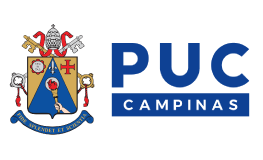Lines of Research:
- Science, Society, Public Policy and Sustainability
Its main emphasis is the generation of conceptual and theoretical knowledge of Sustainability, with emphasis on its interdisciplinarity; it discusses the use of resources and services in the context of the socioeconomic development process present in society; it analyzes the relationship between society and the issues of sustainable development in the construction of public policies and identifies problems related to sustainable development, starting from the integration of the social, ecological, environmental and economic view of the current issues.
- Planning, Management and Sustainability Indicators
It addresses issues related to the planning of sustainable actions, the elaboration of strategies for the implementation of projects and programs involving socioeconomic and environmental management, as well as the study and development of techniques, methods and indicators for monitoring and evaluation of these actions.
Objectives
The Stricto Sensu Sustainability Postgraduate Program aims to qualify the students, within an interdisciplinary vision, to act critically and purposefully in diverse contexts, such as: in scientific research, in higher education teaching, in the development of projects, in the conduct of public policies and in the advisory services to the productive sector, in order to face the challenges imposed by contemporary society. The program has the following specific objectives:a) To confer the Master in Sustainability degree on students.b) To prepare the student to act in the academic environment, qualifying him or her as producer and disseminator of scientific knowledge.c) To contribute to the development of research and new knowledge in Sustainability.d) To contribute to the identification, evaluation and proposition of actions and programs related to sustainable development, especially in the Metropolitan Region of Campinas.e) To promote the consolidation of the Pontifícia Universidade Católica of Campinas (PUC-Campinas) in sustainability research.
Curricular Structure
For the completion (*) of the Master in Sustainability and to obtain the Master’s degree, a total of 32 credits are required, distributed as follows:
1) 02 compulsory subjects of 03 credits, making a total of 06 credits;
2) 04 elective disciplines of 03 credits, making a total of 12 credits;
3) 03 Modules of Advanced Research Seminar (ARS) – compulsory, making a total of 06 credits;
4) Approval in Qualification Exam: until the end of the third semester of the Master’s course, the student must submit his dissertation project to a Qualification Exam.
5) Dissertation: 08 credits.
(*) In order to obtain the Master’s degree, in addition to fulfilling the credits listed above the student must fully comply with the provisions of the General Regulations of Stricto Sensu Graduate Programs. The compulsory subjects are specified below:- Fundamentals of Sustainability: Concepts and Reflections- Sustainability Research Methodologies The minimum duration of the Master in Sustainability is 12 months and the maximum is 24 months.In this way, the progression of the course is distributed as follows:
| 1st semester | 2nd semester | 3rd semester | 4th semester |
|---|---|---|---|
| Compulsory (1) | Elective (1) | Elective (3) | Supervision |
| Compulsory (2) | Elective (2) | Elective (4) | – |
| ARS I | ARS II | ARS III | – |
| Supervision | Supervision | Supervision | – |
History
The Master´s Degree in Sustainability – Interdisciplinary Area – was recommended by the Scientific Technical Council of Higher Education – CTC / ES of CAPES / MEC, on December 11, 2015.








